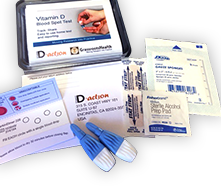Published on January 9, 2023
You’ve just received your omega-3 results – now what? Here are some tips on what to do with your omega-3 results and how to choose the supplements best for you…

Measuring your omega-3 status using the Omega-3 Index can give you a clear picture of whether or not you are getting enough omega-3 fatty acids on a regular basis. Including the AA:EPA and Omega-6:Omega-3 ratios can help you determine if you are getting a good balance of anti-inflammatory and pro-inflammatory fatty acids, and whether decreasing the intake of omega-6 fatty acids may also be necessary for improving your health. Utilizing these tests together can also provide guidance to specific dietary changes that could support improvements in chronic inflammation and disease.
How do you determine what those specific changes should be? Check out the links recommended below to define the steps to improving your omega status that best fit your needs, based on your preferences and results.
How to Improve Your Omega-3 Index and Choose the Right Supplements for You
What is the optimal Omega-3 Index level to aim for, how do you get there, and how long does it take? Here is a general overview of next steps…
Steps to Improve a Low Omega-3 Index Result
How do you determine what dose of omega-3 supplements can help you reach your target?
What Dose of Omega-3s is Right for You?
Use the omega-3 calculator to help you determine your intake needed to reach your target Omega-3 Index
Use the Omega-3 Index Calculator Here
Research is now showing evidence that both DHA and EPA have unique benefits to our health. Decide if you prefer more of one or the other for your own health benefits.
DHA vs EPA – is there a difference in what to take and why?
Understand that most omega-3 supplements do not provide enough of what the majority of individuals need in order to achieve and maintain their target level.
Most Fish Oil Supplements do Not Provide Adequate EPA+DHA per Serving
Before purchasing your supplements, make sure you know how to read omega-3 supplement labels so that you are getting the amount of DHA and EPA you are aiming for, or as suggested by the calculator.
What information is important on Omega-3 supplement labels?
Is your Omega-3 Index not increasing with increased doses of fish oils? The type of fish oil supplement you are taking may be the culprit! Learn what form of fish oil is best for absorption, and what to look for in your supplement.
Why Your Omega-3 Supplement May Not be Increasing Your Omega-3 Levels as Expected
Interested in other forms of omega-3 fatty acids, besides fish oil, such as krill or algal?
Not all supplements are created equally… how do you know that what you are buying is of good quality?
How to Choose Quality Supplements
EPA and DHA from fish oils can be very vulnerable to oxidation, which can have negative effects on health. Here are some tips to help prevent oxidation in your fish oil supplements.
Oxidized Fish Oil Supplements May Harm Your Health
Can you achieve an Omega-3 Index of 8% through diet alone? Are supplements or food sources of omega-3s best for you to raise your levels?
How does fatty fish intake affect Omega-3 Index?
Does all seafood provide the same amount of omega-3s?
Improving Your AA:EPA and Omega-6:Omega-3 Ratios
What is the difference between Omega-3 and Omega-6 fatty acids, how do they each affect human health, and how do you balance them in your diet?
The Importance of Omega-3 and Omega-6 Fatty Acids For Health
What is the difference between the Omega-3 Index, the AA:EPA Ratio, and the Omega-6:Omega-3 Ratio?
What is the relationship between Omega-3 Index and Omega-6 to Omega-3 & AA to EPA Ratios?
What ratios should you aim for, and how do you achieve your target AA:EPA and Omega-6:Omega-3 ratios?
How to Improve Your AA:EPA and Omega-6:Omega-3 Ratios
Know Your Levels of Vitamin D, Omega-3s & Other Important Health Markers
 Having and maintaining healthy omega-3 and vitamin D levels can help improve your health now and for your future. Choose which markers to measure along with vitamin D, such as your omega-3s and essential minerals including magnesium and zinc, by creating your custom home test kit today. Take steps to improve the status of each of these measurements to benefit your overall health. You can also track your own intakes, symptoms and results to see what works best for YOU.
Having and maintaining healthy omega-3 and vitamin D levels can help improve your health now and for your future. Choose which markers to measure along with vitamin D, such as your omega-3s and essential minerals including magnesium and zinc, by creating your custom home test kit today. Take steps to improve the status of each of these measurements to benefit your overall health. You can also track your own intakes, symptoms and results to see what works best for YOU.
Enroll and test your levels today, learn what steps to take to improve your status of vitamin D (see below) and other nutrients and blood markers, and take action! By enrolling in the GrassrootsHealth projects, you are not only contributing valuable information to everyone, you are also gaining knowledge about how you could improve your own health through measuring and tracking your nutrient status, and educating yourself on how to improve it.






